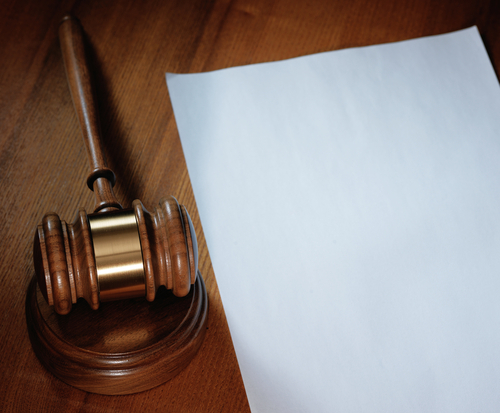Federal judge admonishes BigLaw firm and former partner for description of opposing counsel

Image from Shutterstock.
A federal judge in Washington, D.C., has admonished Paul, Weiss, Rifkind, Wharton & Garrison and one of its former partners for unsupported claims that an opposing counsel’s demeanor was agitated, combative and “unhinged.”
In a May 12 opinion, U.S. District Judge Royce Lamberth of the District of Columbia admonished Paul Weiss and former partner Alex Oh for the demeanor claims that she made in court filings.
Oh had abruptly resigned last month as the new enforcement chief for the U.S. Securities and Exchange Commission after Lamberth said he was considering sanctions.
Paul Weiss was representing the Exxon Mobil Corp. and ExxonMobil Indonesia in the lawsuit, which alleged that military personnel providing security for Exxon facilities in Indonesia sexually assaulted, kidnapped and tortured nearby residents.
During a deposition of an Exxon regional general counsel, Mark Snell, the lawyer “repeatedly read nonresponsive statements verbatim from pre-prepared notes,” according to a sanctions motion by the law firm representing the plaintiffs, Cohen Milstein.
The lawyer questioning Snell was Kit Pierson of Cohen Milstein. In a memorandum supporting a cross motion for sanctions, Paul Weiss and Oh made several statements about Pierson that “had no apparent support in the record,” Lamberth said.
Lamberth said the unsupported statements claimed that Pierson:
• Was “agitated and combative.”
• Had “lashed out at the witness.”
• “Became unhinged … and repeatedly attacked and baselessly threatened to seek sanctions against the witness and counsel.”
• Engaged in “browbeating and disrespectful behavior.”
• Became “indignant and adversarial.”
• Became “agitated and aggressive.”
• Demonstrated “a general lack of respect towards a professional adversary.”
Law.com, Law360 and Reuters have coverage of Lamberth’s May 12 opinion.
Oh and Paul Weiss apologized to Lamberth and said they had made the allegations in good faith.
The apology by Paul Weiss said it was sorry “that it took an approach the court disapproves of in the deposition at issue and in the briefing that followed.”
The apology led Lambert to comment, “To be clear, the issue with the deposition and briefing lies in defense counsels’ objectively improper conduct, not in the court’s offended sensibilities.”
Lambert said Oh “offered a sincere apology” when she submitted a declaration in which she wrote: “I acknowledge and regret my role in the breakdown of civility that occurred during and after this unfortunate deposition. I have worked on this case for nearly 14 years, firmly believe in the merits of my former clients’ case, and have sought to serve my former clients through zealous advocacy. Regrettably, on this occasion, I allowed my strong convictions to get the better of me.”
Oh also said she perceived Pierson’s voice as louder during the deposition because she was wearing noise-canceling headphones.
Lamberth had previously ordered the Exxon defendants to pay the plaintiffs’ expenses in litigating the cross-motion for sanctions. And he said a referral to ethics authorities isn’t warranted. Admonishment can suffice, he said, when the lawyers apologize.
“Ms. Oh has sincerely apologized for her conduct; Paul Weiss has also apologized,” Lambert wrote. “Both should have known better than to impugn another attorney’s character without reviewing the entire record. And neither should have made those accusations without evidentiary support. The court cannot allow such misconduct to occur without at least rebuking counsel.”
Write a letter to the editor, share a story tip or update, or report an error.


